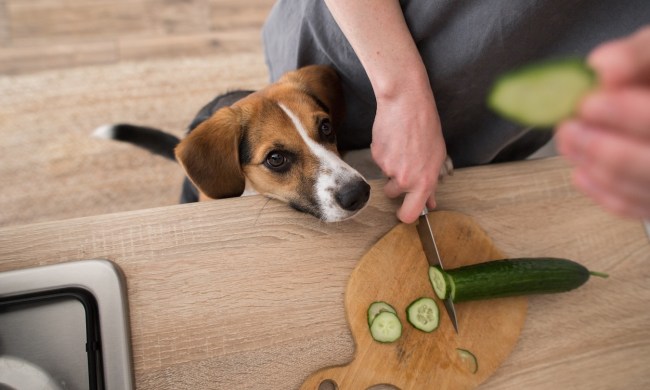
Cultured foods like yogurt are good for more than just your taste buds — they can benefit your whole body. This is largely because of the probiotics they contain. In fact, probiotics (and prebiotics) are great for dogs, too! Your pup (like you) already has a gut microbiome to help with digestion, but you can give it a little boost with some supplements. Whether you add a probiotic to your dog’s diet is something to discuss with your vet, but it’s certainly worth considering.
What exactly are probiotics? And what about prebiotics?
Probiotics are bacteria and yeast that help you digest — that’s why these are sometimes called “good bacteria.” Prebiotics act as food for those microorganisms. You need both for your stomach to function and keep everything moving. While you have all these things naturally, it can’t hurt to help your body along by introducing a little encouragement — and it’s the same with Fido.
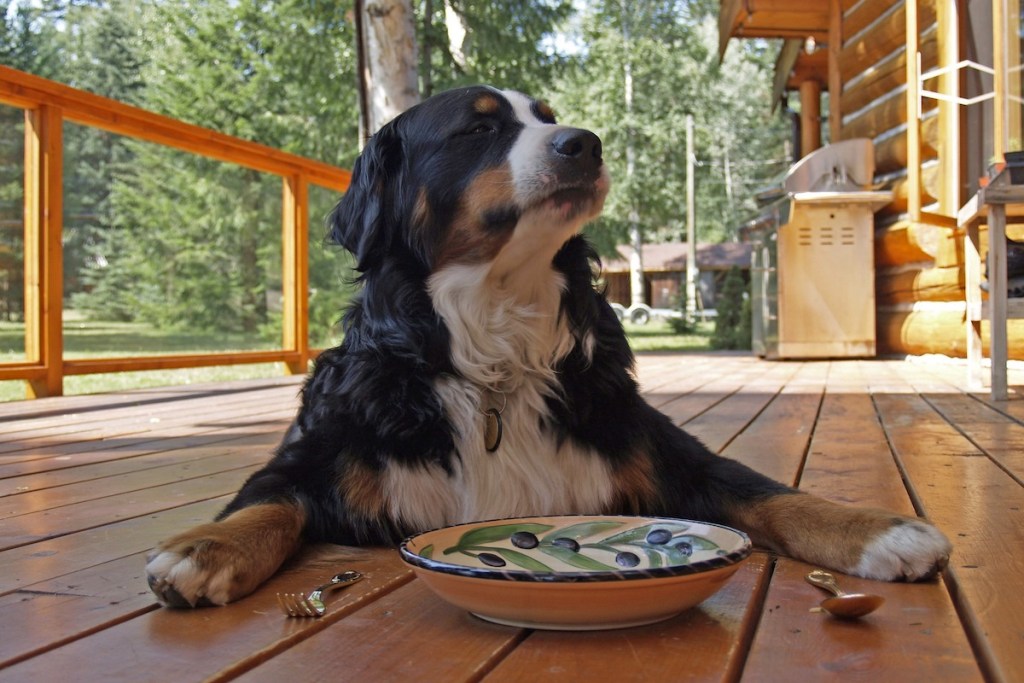
Should I add a probiotic to my dog’s diet?
The good news is that your dog already has natural gut bacteria and they might be getting some extra help in their their fortified kibble as well. Just check the label to figure out what they already get in their diet. If your pup is having issues like loose stools, scooting, or anal gland problems, you might want to consider adding a supplement including probiotics for dogs. Talk to your vet first, however, to rule out more serious issues.
Still — probiotics can benefit any dog, even healthy ones!
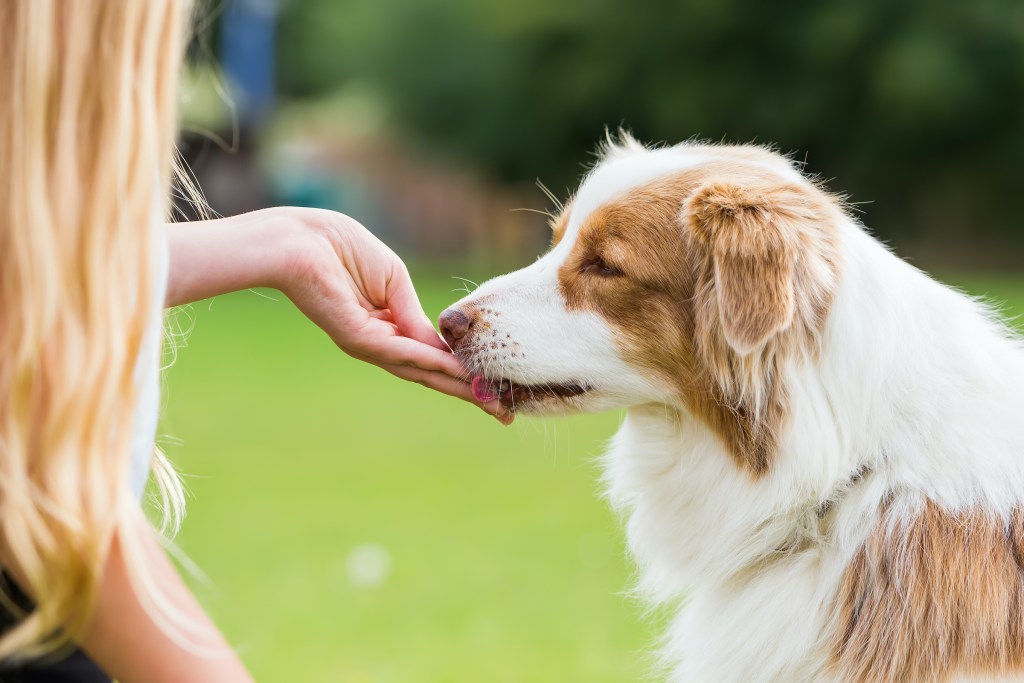
How can I give my dog a probiotic?
There are a few options including spray, powder, and chews. Try different things out with your animal to see what they like best.
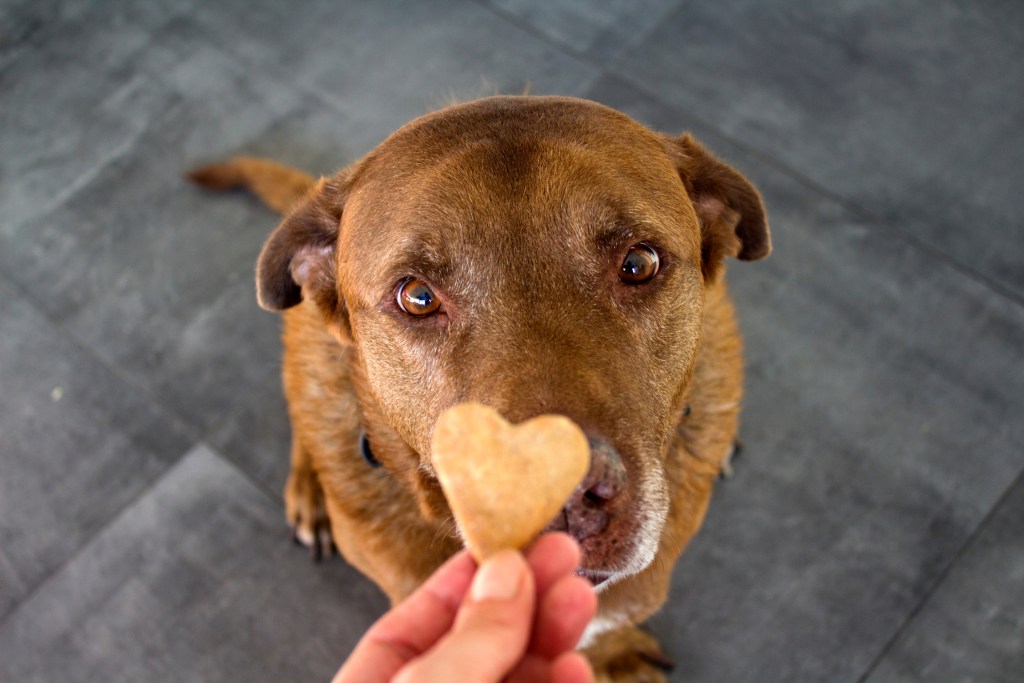
Which probiotics should I buy?
These are just a few of the most popular probiotics for dogs, though your vet might have a recommendation of their own.
Purina FortiFlora Probiotics for Dogs
We’re starting with the overall best because lots of pet parents or FortiFlora SA. For the more advanced variety, you might have to go through your vet, but you’ll also notice the difference if your buddy is having issues. Because these come in single and prepackaged, the live cultures stay intact.
Zesty Paws Probiotics for Dogs
We if your pet is more of a chews dog rather than a powder pup. In addition to the usual bacteria, this supplement also has pumpkin, which aids in digestion. Many reviewers mention that these work on so many issues at once, like gas, soft stool, and bloating, but also skin problems, too.
Glandex Dog Fiber Supplement Powder for Anal Glands
We don’t always like to think about our dog’s anal glands, but it’s just another part of pet parenthood. You might get these expressed at the vet or groomer, however, if you still find that your pup has problems in this particular area, things along. It’s a probiotic, but it also focuses heavily on bulk to help your bestie keep comfortable.
Most of these additions are easy to find, but we wouldn’t suggest getting any of them without a call to your vet first. If you do find that your dog suddenly has diarrhea or soft stools, it could mean parasites or an infection. Rule out those first before deciding that a probiotic is what the doctor ordered.
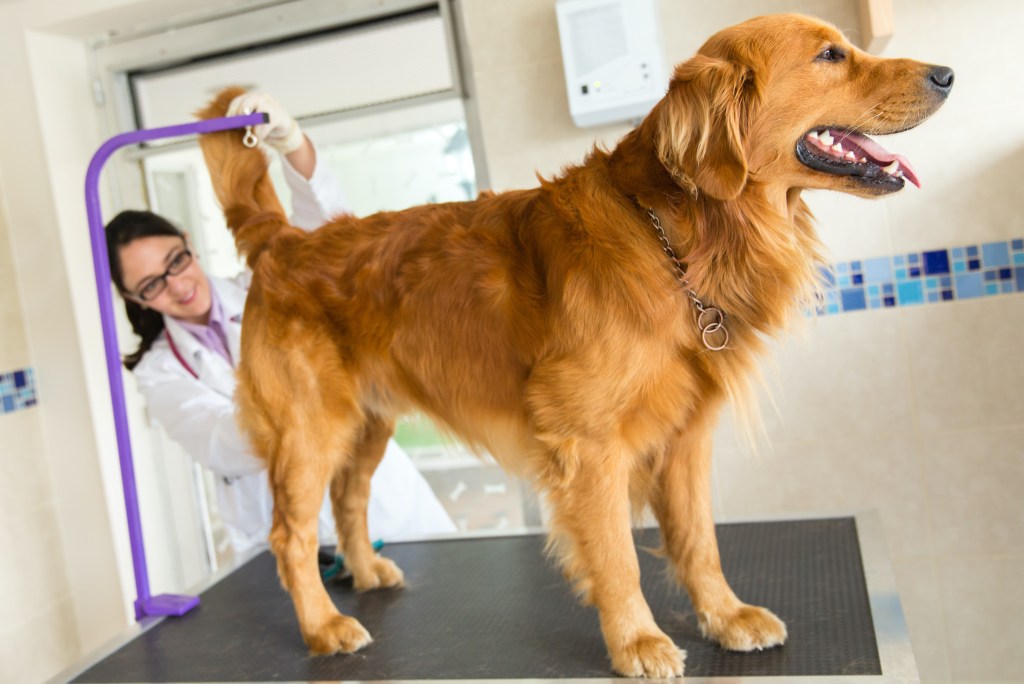
5 benefits of dog probiotics that may sway your decision
Not every canine needs probiotics to keep their system running smoothly, but any dog has the potential to benefit from them. Plus, probiotics support more than just gut health! There are many benefits of probiotics for dogs, some of which you may never have thought of.
Probiotics can help remedy or prevent diarrhea in dogs
Many pet owners turn to probiotics when their pooch experiences diarrhea or constipation – and for a good reason! This type of digestive support can act as a reset for your pet’s system without causing any harmful side effects.
As the experts at Cornell University’s College of Veterinary Medicine explain, “Probiotics normalize the conditions in the intestines by changing the local acidity of the digestive tract and releasing short-chain fatty acids.” In layman’s terms, that basically means that probiotics calm the digestive tract through the healthy microorganisms they release. In fact, they may even be more effective as a preventative measure than as a remedy for problems that have already begun.
Dog probiotics help maintain a healthy gut microbiome
Probiotics benefit your dog’s entire body thanks to helpful, healthy bacteria. These good microorganisms compete with bad bacteria for resources, thus limiting the number and strength of the bad bacteria.
Here’s how the folks at Cornell explain it: “Boosting the populations of helpful bacteria limits the nutrients available for the bad bacteria and reduces their numbers to levels that your dog can tolerate better.” Even Salmonella is no match for probiotics!
Feeding your dog probiotics can strengthen their immune system
Probiotics have so many whole-body benefits that start directly in the gut, and a lot of this has to do with the close relationship between the digestive and immune systems.
VCA Hospitals notes, “There is anecdotal evidence that probiotics work to treat gastrointestinal disease by supporting the maintenance of non-pathogenic microbes in the gastrointestinal tract, thereby supporting the immune system, and competing with pathogenic microbes.”
According to Cornell, about 70% of a canine’s immune system resides in their gut, so reducing the number of harmful microbes can have major benefits.
Probiotics for dogs can improve a pup’s mental health
As probiotics are becoming more popular in the pet industry, veterinary scientists are discovering more and more about what they can do. Recent studies support the belief that probiotics can even help a dog’s mental health.
Dr. Ragen T.S. McGowan, a pet behavior researcher for Nestlé Purina, discovered that dogs that had ingested a probiotic called bifidobacterium longum “were less likely to bark, jump, spin, or pace in situations that normally caused them distress. They were also more likely to explore a new environment.” Though more research is still needed, it’s easy to see how feeling good physically can affect feeling good mentally, too.
Probiotics may even help prevent urinary tract infections
Just when you thought probiotics couldn’t possibly have any more benefits, Cornell notes that positive gut bacteria can even impact the microbiome of the urinary tract. This is a relatively new discovery, but probiotics could be a great addition to cranberry supplements for dogs that suffer from regular UTIs.
Pretty amazing, right? Probiotics can do a lot more than reduce stomach upset and diarrhea, and that’s what we love to see. When in doubt, don’t hesitate to ask your vet if probiotics would be right for your dog.


